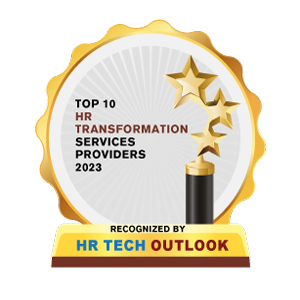In the ever-evolving landscape of business and technology, the role of Human Resources (HR) has undergone a remarkable transformation. HR departments are no longer confined to administrative tasks and personnel management; instead, they have emerged as strategic partners driving organizational success.
Traditionally, HR departments were primarily focused on administrative functions such as payroll processing, benefits management, and compliance. However, the advent of HR transformation has shifted the paradigm, empowering HR professionals to become strategic partners within organizations. By leveraging advanced technologies, data analytics, and insights, HR can now make informed decisions that align with business goals and contribute to overall growth and success.
HR transformation allows for the automation of routine tasks, enabling HR professionals to shift their focus towards strategic initiatives. This includes talent acquisition and management, employee engagement and development, diversity and inclusion, and fostering a positive organizational culture. By embracing these strategic roles, HR becomes a key driver of competitive advantage, ensuring that organizations have the right talent, skills, and culture to thrive in a rapidly changing world.
The digital age has brought about a significant shift in employee expectations and demands. Today’s workforce seeks a seamless and personalized employee experience, similar to the consumer experiences they enjoy in their personal lives. HR transformation plays a crucial role in meeting these expectations and enhancing employee experience throughout the employee lifecycle.
HR transformation has revolutionized the role of HR, empowering it to become a strategic partner in driving organizational success. By embracing technology, data analytics, and strategic initiatives, HR departments can enhance the employee experience, develop agile workforces, and align HR practices with business objectives. As we move towards an increasingly complex and competitive future, organizations must recognize the importance of HR transformation and invest in building a dynamic HR function that can effectively meet the evolving needs of the workforce. By doing so, organizations can empower their employees, foster innovation, and achieve sustainable growth in the years to come.

















